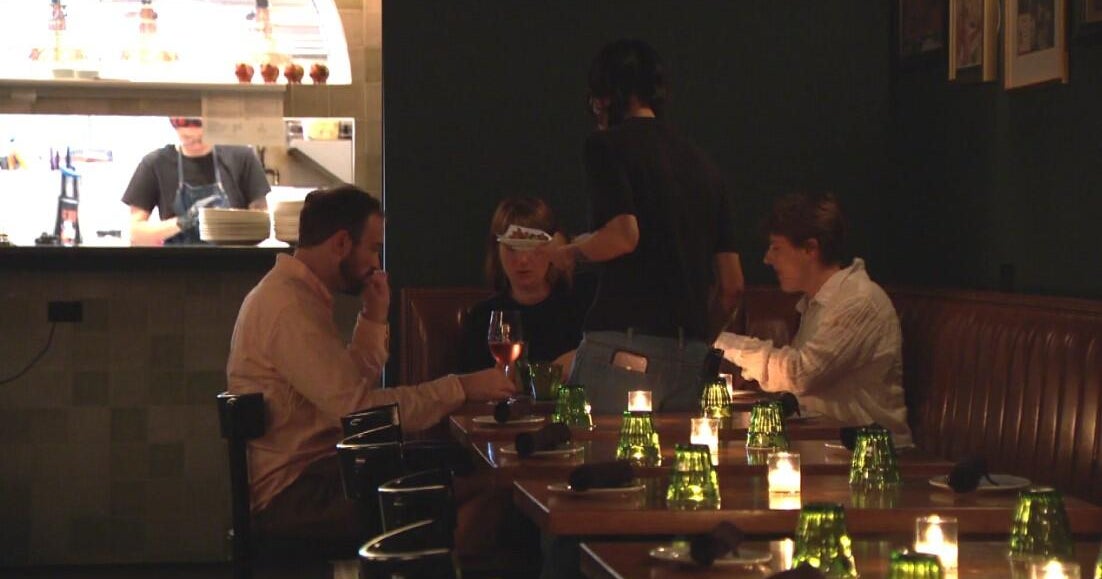A Chicago man turned an old pool hall into a new Mexican-American cocktail bar and kitchen in the Pilsen neighborhood, and he’s got quite the story to tell about what it means to honor his parents’ legacy.
Emidio Oceguera was born and raised in Pilsen.
“I am Pilsen. It’s a big part of me. It’s what built my character,” he said. “I would like to keep my father and my mother’s legacy alive in Pilsen.”
That legacy began in an unassuming green building at 1700 S. Halsted St. It was built in 1853, and even survived the Great Chicago Fire.
Now it’s a hot new Mexican-American cocktail bar and kitchen called Cerdito Muerto, but for much of his life, Oceguera simply called it home.
“We grew up upstairs,” he said. “My parents had a business here since the ’80s. … I literally tell people you’re in my house, because you literally are in my house. I grew up here.”
If the building’s walls could talk, they’d tell you the history of a hard-working, close-knit Mexican-American family; but it’s not the story you might expect to hear.
“When my father got here in ’73, he rented a cot in the basement,” Oceguera said. “Originally, the business used to be a barbershop. … Once my father got on his feet, he ended up meeting my mother here in Chicago, and in ’83, that’s when my dad closed the barbershop and he made it a pool hall.”
Why a pool hall?
“My father was a rancher in a farming community in a rural area in Mexico,” he said. “Shooting pool is their pastime. … and my father was very gifted at playing pool. So he made it a pool hall.”
But he didn’t do it alone.
“Behind my father was a very, very strong woman who really pushed him to, ‘Let’s do this. We can do this. Why not?'” Oceguera said. “My mother started selling menudo [a Mexican beef stew] to the young guys on Sundays. … My father took away one of the pool tables and made her a kitchen.”
The American dream began to become real for the Ocegueras and for the neighborhood around them.
“It was such a safe space for a lot of people in the community, especially young men – Brown men, specifically – that were able to come here, enjoy, shoot some pool, eat some tacos,” Oceguera said. “I would like to think that most people that are from Pilsen or have roots in Pilsen came across these doors at some point.”
Many did until the Great Recession hit in 2009. Work for Oceguera’s father, whose day job was drywalling, began to wane.
“From 2010 on, it was kind of like towards the end of the high point of this business,” Oceguera said. “In 2013, my father did pass away; and the moment he passed away, immediately business kind of died.”
Just a few years earlier, Oceguera earned a degree in hospitality management. Right out of college, he worked in some of the city’s top restaurants.
In 2022, he felt ready to combine his expertise and his love for his parents into a new venture.
“The vibe is very pleasant. I want to say it’s not moody, but it’s intimate. It’s almost like you’re coming to a very nice dinner party at a friend’s house,” he said.
It took hard work and nearly three years of construction, but Oceguera traded pool tables for dining tables, creating Cerdito Muerto.
It opened on his birthday in May 2025. The name literally means dead piggy.
“Pigs are endearing in our culture,” he said. “Cerdito Muerto, the muerto part is really paying homage to the people that have been here before.”
The cues aren’t the only homage to family.
“I have one of my dad’s water canteens from his favorite soccer team, Chivas de Guadalajara, because my parents are from Jalisco, as well as some religious artwork that I grew up seeing,” Oceguera said.
Oceguera said it’s the intangibles that hit home the most.
“I know my father would have been very proud, and it’s just a shame he was not here to experience it, but he is here without a doubt,” he said. “I talk to my father a lot here, and his guidance is very much well-received, and I know when I’m receiving it.”
“This isn’t just me, it’s my parents’ legacy. I think about that every day I’m in this space. I think about that every day,” he added.
This Hispanic Heritage Month, Oceguera also thinks a lot about the bigger picture.
“I think what it means to me is just being proud of what I bring to the table, people that look like me, what we bring to this country’s table,” he said. “I just want people to just respect our heritage and understand we’re all in same boat. … Mexican heritage to me means just the American dream. I mean, it is the American dream.”
Oceguera said his mom is still in the business, making Mexican dishes with her time-tested recipes.
More from CBS News
